Meet Sixto
Meet Sixto, a sanitation entrepreneur solving a major problem for his community.
SIXTO’S CHALLENGE
Sixto Mendez has lived in a small community situated in the department of Atlántida in northern Honduras over the last 40 years. As long as he can remember, community members have been looking for a solution to their challenges with wastewater management.
"In our village, we still don’t have access to a public sewer. The neighbors choose to build septic tanks. But when these fill up, there’s no option but to open more and more holes for tanks. There were no pit emptying services," says Sixto.
Septic tanks are built underground in homes that do not have access to public sewerage. They collect all the wastewater from the house, ideally facilitating the correct decomposition of fecal sludge, to reduce the impact on the surrounding soil and water.
Because septic tanks collect many kinds of waste – from toilets, showers, sinks, kitchens, and cleaning facilities – families must empty the sludge between every one to five years.
Six million people in Honduras don’t have access to municipal sewers, and septic tank emptying services rarely exist in rural communities. Overaccumulation can cause a septic tank pit to collapse, contaminating nearby water and risking community health.
"At home, we didn’t have space to open another septic well, and the one we had was about to collapse. There was nobody in the village who could offer septic tank emptying services," Sixto recalls.
Living their entire lives with this need for a sanitation solution motivated Sixto and his family. They wanted to create a pit emptying business that would provide services at an affordable price. While Sixto knew they were on to something, he also knew they needed investment, machinery, and training.
At this point, Sixto learned about a program from Water For People in Honduras that focused entirely on supporting businesses that offer sanitation services in rural communities. He quickly enrolled in El Desafío de Caca – The Sh*t Challenge.
SIXTO’S BUSINESS
Through the sanitation program, the Water For People team supported and helped develop Sixto’s entrepreneurial vision through trainings related to administration and financial management, marketing, and technical knowledge about safe sludge removal.
Sixto even collaborated on designing a machine for sludge extraction using a mechanical piston operated by two people without needing electric power. The EC-HN 1 can pump around one cubic meter of sludge per house safely and hygienically.
In a short amount of time, the family business has grown.
"Six months ago, we started offering the septic tank emptying services, and we’ve had work every day. I couldn’t cope with so much demand some days, so I hired three assistants. Every day I receive calls from people asking for my services – we even work on weekends!"
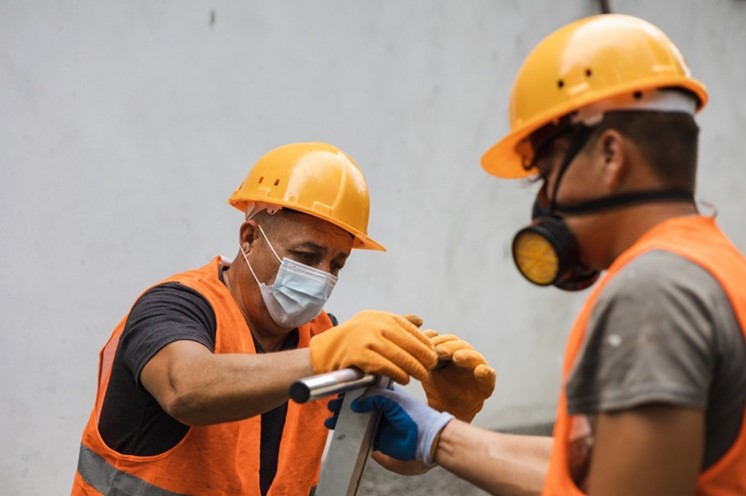
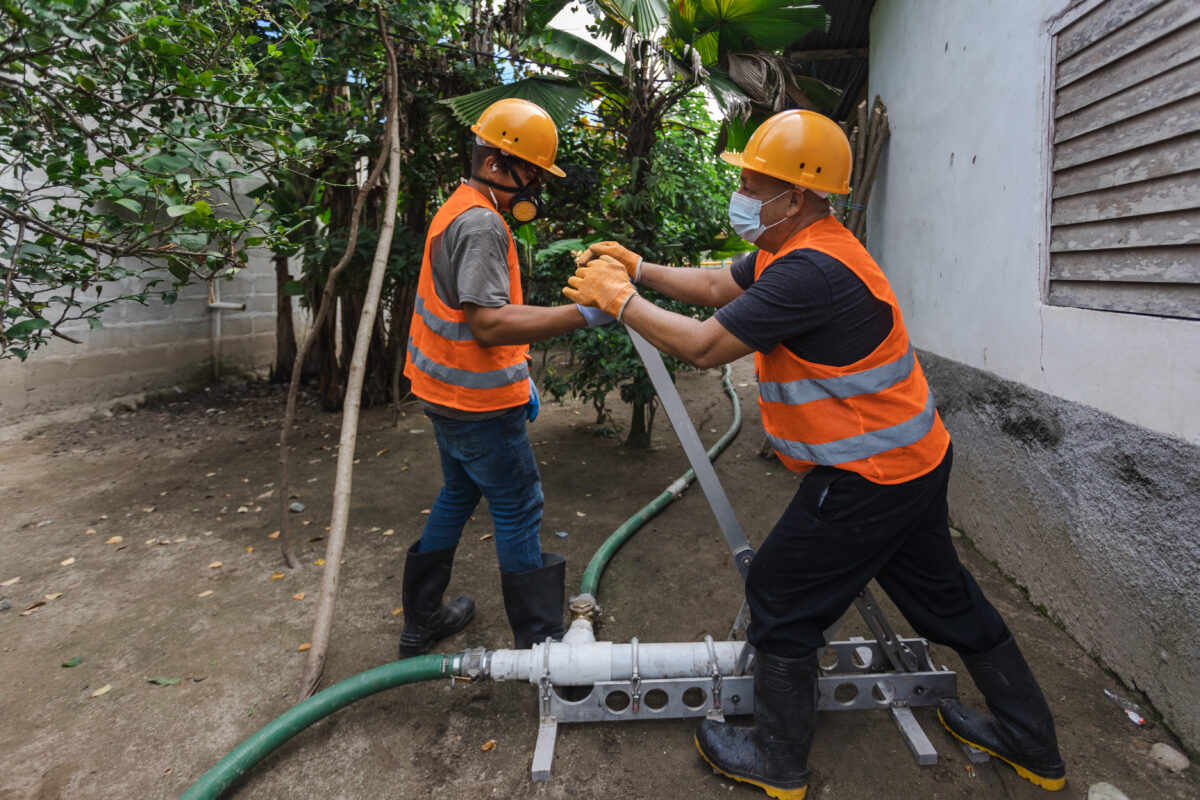
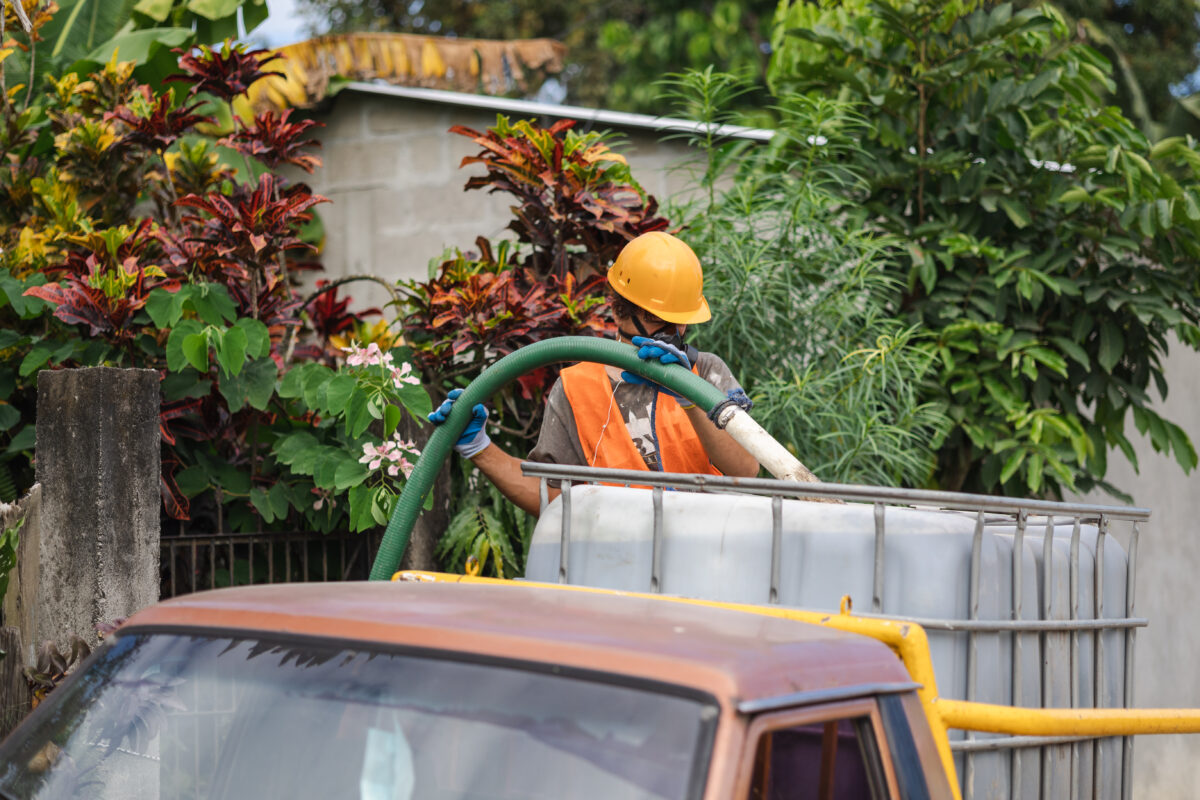
The work was so successful that after just a few months, septic tank emptying became Sixto’s family’s primary source of income. Every morning, Lesly, his wife, helps get everything ready and organized for the workday. Lesly and their two daughters are proud of how, as a family, they are positively impacting their neighbors.
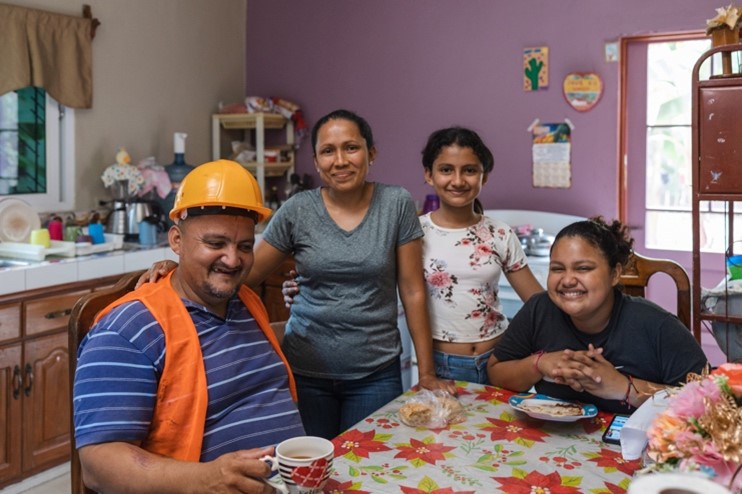
"At first, people found it strange that our job was to clean up fecal sludge, but my family and I are happy that we could see an opportunity where others only saw problems. Now, this is the main source of income for my family and the families of my three workers; we are all proud," shares Sixto.
In continuing to build his business, Sixto bought a vehicle to properly transport the extracted sludge, which he then deposits in the oxidation ponds authorized by the local government. Next, he intends to purchase another EC-HN 1 machine and more tanks to meet the high demand in his village.
SIXTO’S CUSTOMERS
Most of Sixto’s business comes from referrals by satisfied customers. Plus, he can make a strong case: The average cost of a sludge emptying service is 20-35% of installing a new septic tank, is completed in a single day, and is safer for the environment.
Rene Castillo, Sixto’s neighbor, was one of his first customers. He owns a small restaurant that produces a large amount of waste from the bathrooms and kitchen. Before long, the restaurant had produced excess quantities of waste that needed to be removed, but had no room to store it on site. It began to over-accumulate. Rene Castillo contemplated having to close his business and move it elsewhere – it didn’t seem like there would be another option.
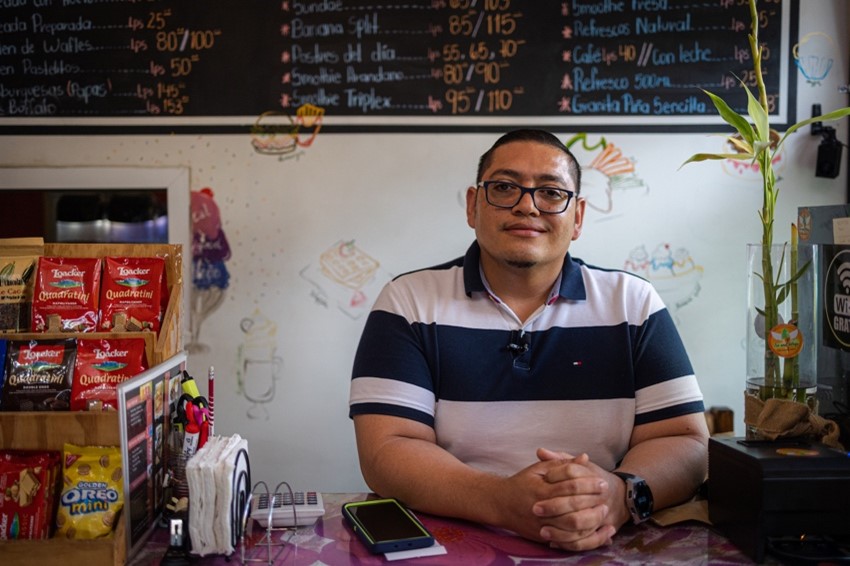

"There are no solutions for wastewater management in this community; no neighbor has access to a public sewer. I started to consider that I would need to move my business because I didn’t have space to dig another septic tank. For this reason, I was very happy with Sixto’s service. We know him as a good neighbor, and now, he can help us all of our needs," Rene Castillo shares, remembering his dilemma with sanitation management for his restaurant.
• • •
Sixto and his family feel immensely proud of what they are achieving. To them, their business means more than just a source of income. It means providing a real, tangible solution to one of the biggest problems in their country – the lack of safe sludge management, which affects much of Honduras.
"Water For People’s support to start this business was so important, especially in terms of administrative training and machine operation. I believe that to solve the sanitation problem in our villages, there must be more support for entrepreneurs like us. Every day, I’m motivated to help my neighbors with a problem that has a solution now," Sixto proudly says.
